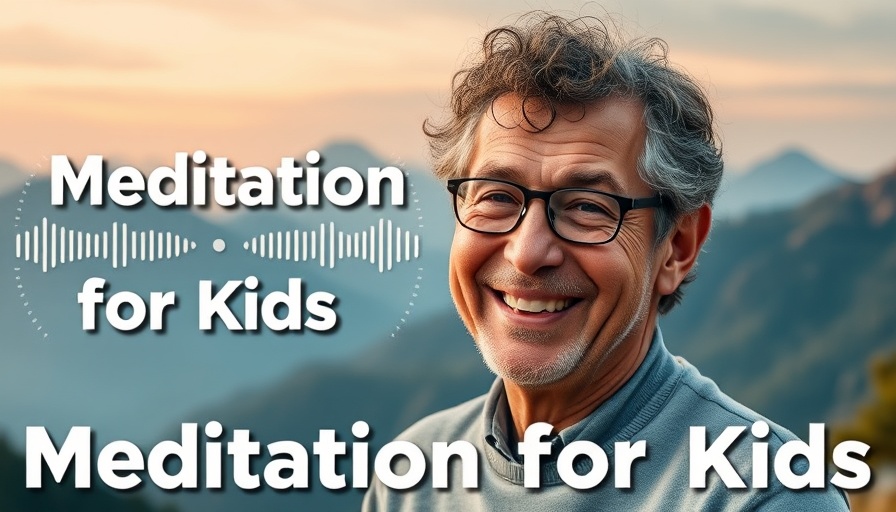
A Mindful Shift: Setting the Stage for Positivity in Children
In a world filled with stimuli vying for attention, children often find themselves overwhelmed by negativity. This reality can have profound effects on their mental well-being. Dr. Mark Bertin’s eight-minute guided meditation offers a refreshing approach, encouraging kids to redirect their focus towards the positive aspects of their daily lives.
Understanding the Negativity Bias
The human brain is inherently wired to notice the negative—a survival mechanism shaped by our ancestors who had to navigate perilous environments for survival. This negativity bias, while essential in the past, creates hurdles in today’s less threatening context, especially for children facing pressures from school and social dynamics. Understanding this bias is crucial, as it serves as the backdrop for why meditation focused on positivity is not just beneficial but necessary.
Creating a Routine of Positive Reflection
The guided meditation begins with simple breathing exercises, encouraging children to notice their body’s movements with each breath. Then they are gently guided to reflect on their day, focusing on what went well. This exercise is not merely about appreciating positive moments; it’s about rewiring the brain to acknowledge joy amidst chaos. Moreover, encouraging children to visualize proud moments about themselves fosters a strong sense of self-worth and enhances their emotional resilience.
Visualization: The Power of Imagining
Complementary to Bertin’s approach, the “Positive Morning Mindfulness” meditation from Happy Minds incorporates guided imagery. This technique allows children to use their imagination to envision a successful day ahead, instilling confidence through mental rehearsal of positive experiences. In both practices, visualization serves as a tool to enhance children’s capacity for happiness by enabling them to picture themselves achieving and thriving.
Building Emotional Awareness
One of the key takeaways from these meditation practices is the importance of emotional awareness. Kids often feel pressured to suppress negative thoughts or feelings. Instead, Bertin encourages them to recognize that experiencing fear or sadness is part of being human. However, the emphasis on gratitude and pride creates a balanced feeling, demonstrating that while negative emotions exist, they do not have to dominate one’s experiences. This mindful blend prepares children for a world that is both challenging and rewarding.
Inspirational Tools for Quiet Reflection
Tools such as the “Best Day Yet” podcast offer additional resources that help convey meditation and mindfulness principles—transforming them into fun and engaging activities for children. The podcast combines storytelling with affirmations, equipping kids with practical mindfulness tools that can be seamlessly integrated into their daily routines. This approach not only makes mindfulness accessible but also demonstrates that positivity can be cultivated actively.
Conclusion: Encourage Regular Practice
As children navigate both trivial and significant life events, incorporating meditation into their lives can reap many benefits—mentally and emotionally. Encourage your child to set aside just a few minutes each day to engage in this mindful practice. What’s important is consistency; as children become accustomed to reflection and mindfulness, the positive effects will ripple through their lives, enhancing their capacity to handle challenges. Start small, but encourage them to recognize the power of their thoughts.
Your child deserves to experience a peaceful mind filled with positivity. Consider integrating tools and practices from guided meditations like those offered in Bertin's and Happy Minds' work. By instilling this routine early, you promote lifelong habits that will support their emotional health.
 Add Row
Add Row  Add
Add 




Write A Comment